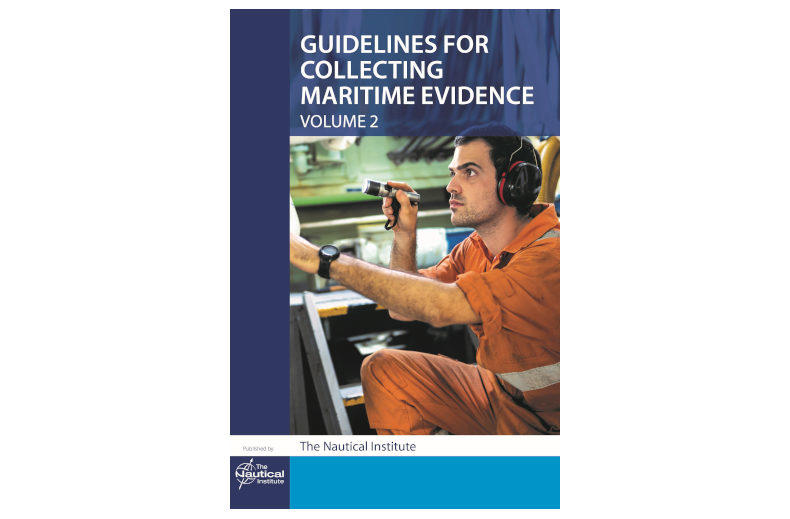Press Release: NI publishes Guidelines for Collecting Maritime Evidence, Volume 2
PRESS RELEASE

10.09.19
This second volume in the Collecting Maritime Evidence series has a special focus on electronic evidence – what it is, how to preserve and collect it, and how it can be used to understand the circumstances that led to a maritime incident.
While not completely replacing traditional records such as hard-copy logbooks, data from electronic sources such as ECDIS, VDR and AIS is vital for the investigator. Admiralty Judge Mr Justice Teare points out that the great benefit of such evidence is that “electronic or digital records cannot lie or have a faulty or imperfect recollection. They will be the best evidence of what happened.”
The book’s expert contributors are drawn from a wide range of disciplines. Among the subjects they discuss are the roles of the average adjuster and the mariner lawyer, evidence collection from the P&I perspective and that of the naval architect, and fire, deterioration of agricultural cargoes, machinery failure and surveying.
Introducing the volume, Captain Ian McNaught CVO MNM FNI, Deputy Master of Trinity House, emphasises, “It is imperative that seafarers understand the need for accurate evidence after an accident on board ship.” The expert advice contained here and in Volume 1 will enable seafarers to protect themselves and defend their actions through the production of such evidence.
To purchase a copy of Guidelines for Collecting Maritime Evidence, Volume 2 visit https://bit.ly/2k7ly1M (£50.00, NI Members £35.00)
Guidelines for Collecting Maritime Evidence, Volume 2, can be bought together with Guidelines for Collecting Maritime Evidence, Volume 1, for £90.00 (NI members £63.00).
ISBN 978 1 906915 70 4, NI publication code: 0388
For more information and review copies please contact Bridget Hogan, Director of Publishing and Membership, The Nautical Institute +44 (0) 20 7928 1351, [email protected]
Ends
Editor’s Notes:
The Nautical Institute is an international representative body for maritime professionals involved in the control of seagoing ships. It provides a wide range of services to enhance the professional standing and knowledge of members, who are drawn from all sectors of the maritime world. Founded in 1972, it has over 40 branches worldwide and some 7,000 members in more than 120 countries.
Please note: The Nautical Institute takes a capital T on The
